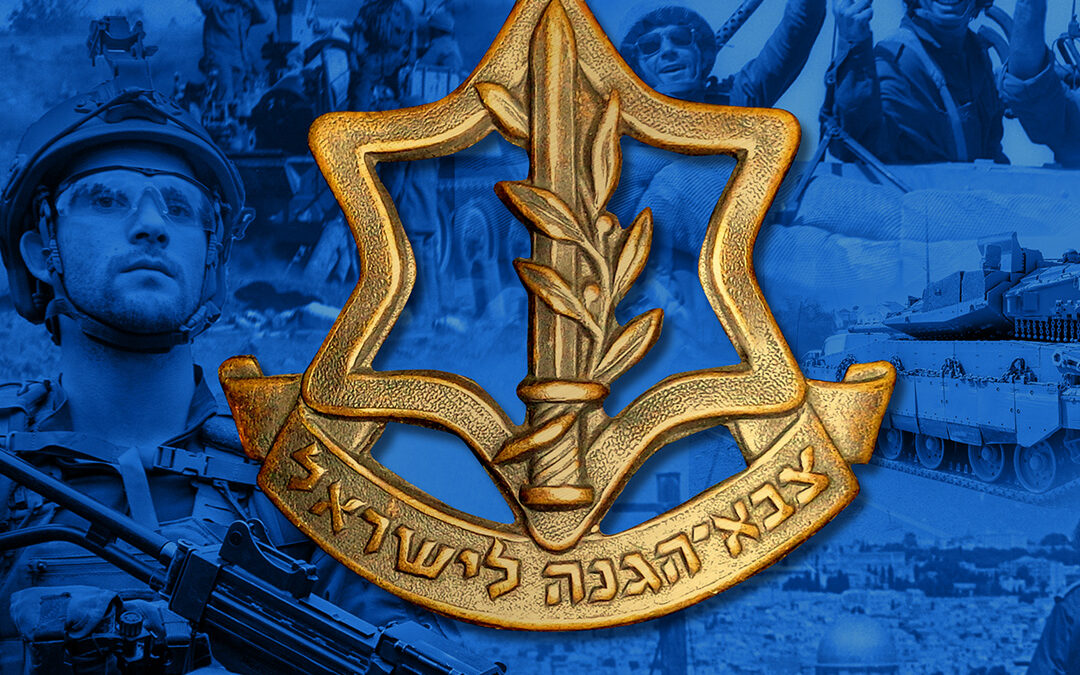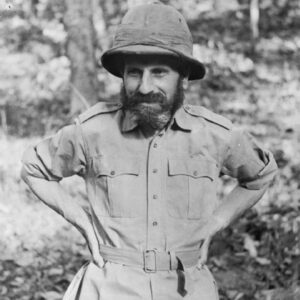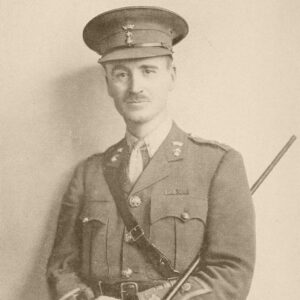Since the miracle rebirth of the Jewish state in 1948, the nation has been fighting to survive. The first war started on the day independence was declared, and it has been raging off and on for more than 75 years now. Throughout that time, the Israel Defense Forces have been the shield of the nation. They have fought with courage and tenacity, often outnumbered by their enemies, and won victory after victory. Today the IDF is regarded as one of the premiere military forces in the entire world. But they have been sorely tested by the current war, both in its length and scope.
The Israeli cabinet ratified the name “Israel Defense Forces” ![]() , Tzva HaHagana LeYisra’el, which means “army for the defense of Israel,” on 26 May 1948. The Ground Forces, Air Force and Navy branches currently have about 170,000 active duty troops. In addition, there are more than 450,000 reservists, many of whom have been activated during the current war because of the scale of the operation required.
, Tzva HaHagana LeYisra’el, which means “army for the defense of Israel,” on 26 May 1948. The Ground Forces, Air Force and Navy branches currently have about 170,000 active duty troops. In addition, there are more than 450,000 reservists, many of whom have been activated during the current war because of the scale of the operation required.
Current Israeli law requires military service for most Israeli citizens when they turn 18, though there are exceptions made for Arab citizens, Orthodox Jews, and others. Normal terms of service for young men are 32 months, although some specialized roles require a 36-month commitment. Normal terms for young women are 24 months, although again, certain positions come with a 36-month commitment. After completing their full time service, those who do not select a permanent military career become part of the reserve, subject to recall in times of crisis or war.
The IDF was forged in the fires of war. Again and again, the men and women of Israel have risked and given their lives. And it is still happening today.
Since the rebirth of Israel, Christian friends from around the world have been a vital part of Israel’s defense. Here is a look at some of the ways these Christian Zionists made a difference, helping to shape the IDF and ensure the fledgling Jewish state would survive…
Orde Charles Wingate 1903-1944
Major Orde Charles Wingate was a British officer who played a prominent role during World War II. Known for his unorthodox and innovative military tactics, Wingate’s leadership and unconventional approach left a lasting impact on the war effort, particularly in the campaigns in Burma (now Myanmar).
Wingate was born on February 26, 1903, in Naini Tal, India, to a military family. His father, Colonel George Wingate, served in the British Army. From an early age, Wingate was exposed to the military lifestyle and developed a keen interest in adventure and exploration. In 1921, Wingate joined the Royal Military Academy at Woolwich, where he received formal military training. He showed exceptional talent and was commissioned as a second lieutenant in the British Army’s Royal Artillery in 1923. During his military career, Wingate served in various assignments in Sudan, Palestine, and other parts of the Middle East. It was in Palestine that Wingate’s unique approach to warfare and unconventional tactics began to emerge. He developed a deep admiration for the Jewish community and their struggle for statehood. Wingate recognized the need for specialized military units to combat guerilla warfare and insurgency, and he formed close relationships with Jewish underground organizations, such as the Haganah.
The Haganah was a Jewish paramilitary organization that played a crucial role in the establishment and defense of the State of Israel. Formed in the early 1920s, the Haganah operated under the British Mandate for Palestine and evolved into the primary defense force of the Jewish community during a period of political unrest and Arab-Jewish tensions. The roots of the Haganah can be traced back to the early Zionist settlements in Palestine.
As Jewish communities grew, they faced increasing hostility from Arab nationalists and sporadic violence. In response, Jewish residents organized self-defense groups to protect their communities and counter Arab attacks. These groups eventually merged to form the Haganah, which means “defense” in Hebrew. In its early years, the Haganah focused on training and preparedness, with an emphasis on developing military capabilities and intelligence networks. It operated quietly to evade the scrutiny of the British authorities who viewed Jewish military activities with suspicion. Wingate would soon adopt some of the group’s practices in his own efforts. Wingate’s ideas were met with skepticism by some within the military establishment, but he continued to develop and refine his strategies. In 1936, Wingate was assigned to lead the Special Night Squads. The Special Night Squads were a British military unit formed in Palestine during the Arab Revolt in the late 1930s. Led by Major Wingate, the squads were created to counter Arab attacks on Jewish settlements and to protect British interests in the region.
Palestinian Arabs felt increasingly marginalized as Jewish immigration surged, leading to tensions over land ownership and economic opportunities, along with antisemitic violence. The British administration’s perceived bias towards Jewish interests and their restrictions on Arab political activities further fueled discontent among the Arab population. The revolt began on April 19, 1936, with a general strike that paralyzed major cities and towns throughout Palestine. Arab workers, students, and merchants refused to go to work or attend British-run schools, demanding an end to Jewish immigration and land sales to Jews. The strike quickly escalated into violent confrontations between Arab demonstrators and British security forces.
The Arab Higher Committee (AHC), led by Haj Amin al-Husseini, emerged as the political leadership of the revolt. The AHC called for the boycott of British institutions and Jewish businesses, as well as the formation of local defense committees to confront the British authorities and Jewish settlements. The revolt spread across Palestine, with attacks on British police stations, railways, and Jewish settlements becoming more frequent. In response, the British formed the Special Night Squads as a specialized force to counter these attacks. The squads were composed of British soldiers, Jewish volunteers, and members of the Jewish settlement police.
Under Wingate’s leadership, the Special Night Squads conducted relentless hit-and-run operations against Arab guerrillas. They would patrol the countryside at night, ambushing Arab attackers, destroying their bases, and gathering intelligence on their movements. The squads often used small teams armed with machine guns, grenades, and explosives to carry out their operations swiftly and effectively. Wingate’s tactics emphasized mobility, surprise, and aggressive action. He recognized the importance of intelligence gathering and conducted thorough reconnaissance to stay one step ahead of the enemy. The Special Night Squads used their knowledge of the terrain and their ability to strike swiftly to gain a tactical advantage.
The Special Night Squads served as a precursor to Wingate’s later endeavors during World War II, particularly his leadership of the Chindits in Burma. The Chindits were a specialized British guerrilla force that operated in Burma (now Myanmar) during World War II. Led by Major General Orde Wingate, the Chindits conducted long-range penetration operations behind enemy lines, engaging in sabotage, disruption, and harassment of Japanese forces. Their unconventional tactics and ability to operate deep in enemy territory made them a unique and formidable force in the Burma campaign.
Tragically, Wingate’s life was cut short during the war. On March 24, 1944, Wingate was flying in a U.S. Army Air Forces B-25 Mitchell bomber aircraft with a crew of four and several passengers, including American liaison officers and British staff members. Unfortunately, as it returned from a successful operation, the plane encountered severe weather conditions, including thick fog and heavy rain. The aircraft, named “Hotspur,” struck a mountainside in the region of Manipur, India, near the India-Burma border. It is believed the poor visibility and unfavorable flying conditions contributed to the crash. The crash resulted in the loss of all passengers and crew on board, including Wingate.
In May 1948, as Arab armies threatened the newly formed State of Israel with extinction, Wingate’s wife, Lorna, and their son Orde Jonathan boarded a small plane to fly over the Israeli settlement Yemin Orde, named after their late husband and father. At the moment the plane entered the airspace over the village, a large group of Syrians attacked. In her hand, Lorna held her husband’s Bible— the one that had accompanied him on all his travels and assignments. On its flyleaf, she wrote:
7 May ’48. To the defenders of Yemin Orde: Since Orde Wingate is with you in spirit, though he cannot lead you in the flesh, I send you the Bible he carried in all his campaigns and from which he drew inspiration of his victories. May it be a covenant between you and him, in triumph or defeat, now and always.
After signing her name, Lorna Wingate flung the Bible from the window of the small plane. Retrieved by an Israeli fighter, it inspired men in the ditches below to repel their attackers. Wingate was one of the mighty men of Israel, and his deeds are woven through the history of the rebirth of that nation. In 1958, Lorna and her two children were invited to the residence of the Israeli Ambassador to the Court of St. James. The leaders of the fledgling nation wished to pay tribute to her husband for his support during the fight for independence by posthumously awarding him the Defense Medallion. Jonathan Wingate, their eldest child, was presented with the Medallion in the name of his father, Orde Charles Wingate.
He recognized the potential of a Jewish state and actively advocated for Jewish settlement and defense against Arab attacks.
John Henry Patterson 1867-1947
John Henry Patterson was a British Army officer and colonial administrator who played a significant role in various military campaigns and colonial activities during the late 19th and early 20th centuries. He is best known for his leadership and involvement in the construction of the Uganda Railway and his efforts in leading the Tsavo Man-Eaters incident.
Patterson was born on November 10, 1867, in Forgney, County Westmeath, Ireland. Raised in a family with a strong military tradition, Patterson’s early life was shaped by a sense of duty, discipline, and a desire for adventure. Patterson received his early education at King William’s College on the Isle of Man, where he excelled academically and displayed leadership qualities. Following his schooling, he embarked on a military career by enrolling at the Royal Military Academy in Sandhurst, England. There, he underwent rigorous training, honing his skills in various aspects of military tactics and strategy.
After graduating from Sandhurst, Patterson was commissioned as a second lieutenant in the British Army. His early assignments included postings in Ireland and Egypt, where he gained practical experience and demonstrated his abilities as a capable and resourceful officer. Patterson’s first major opportunity to showcase his leadership came during the construction of the Uganda Railway in East Africa.
He was selected to oversee the challenging task of building a railway line that would connect the interior of East Africa with the Indian Ocean. This ambitious project involved navigating hostile terrain, combating diseases, and managing a large labor force comprising African workers and Indian immigrants. Patterson’s strong organizational skills, innovative thinking, and ability to adapt to difficult circumstances were instrumental in the successful completion of the railway.
During his time in Africa, Patterson encountered one of the most memorable challenges of his career—the infamous Tsavo Man-Eaters. These were a pair of notorious maneless male lions that terrorized railway workers in Tsavo, Kenya, during the construction of the Uganda Railway. The attacks by the Tsavo lions occurred between March and December 1898 when the railway workers were constructing a bridge over the Tsavo River. The lions were estimated to have killed as many as 135 people, although the exact number remains uncertain. The man-eating lions were characterized by their unusually large size and lack of manes, a rare trait in male lions. After several failed attempts, Patterson managed to kill both lions. The skulls and skins of the Tsavo lions were eventually acquired by the Field Museum of Natural History in Chicago, where they remain on display.
Patterson’s military career extended beyond Africa. He served in the First World War, where he commanded a battalion of the Jewish Legion, a unit comprised of Jewish volunteers. The Jewish Legion, also known as the Zion Mule Corps, was a military unit formed during World War I as part of the British Army. It was composed primarily of Jewish volunteers from various parts of the world who were committed to the Zionist cause and sought to establish a Jewish homeland in Palestine.
The idea of creating a Jewish fighting force was initially proposed by Ze’ev Jabotinsky, a prominent Zionist leader, in 1914. Jabotinsky believed that Jews should establish their own state and actively fought against anti-Semitism and discrimination. In response to violent anti-Jewish pogroms in Russia, Jabotinsky established the Jewish Self-Defense Organization in 1903. He believed that Jews needed to be able to protect themselves physically and advocated for the establishment of a Jewish fighting force.
In 1917, the British War Office approved the formation of the Jewish Legion. The unit consisted of three battalions, with a total strength of approximately 5,000 soldiers. The volunteers hailed from various backgrounds, including Palestine, Russia, America, Canada, and other parts of the British Empire. The Jewish Legion was involved in several military campaigns during World War I. Its first significant engagement was in the Sinai and Palestine Campaign, where the unit fought against the Ottoman Empire. The Legion participated in the Battle of Gallipoli, the Battle of Megiddo, and various other operations in the region. Their efforts played a crucial role in the British victory and the eventual collapse of the Ottoman Empire in the Middle East.
The formation of the Jewish Legion was significant for several reasons. First, it was a tangible representation of Jewish military power and the desire for self determination. Second, it allowed Jews from different backgrounds to unite under a common cause and fight for their own interests. The Jewish Legion also had a profound impact on Jewish identity and self-perception. It provided a sense of pride and empowerment for Jewish soldiers who were able to serve under their own flag and fight for their own homeland. The experience of serving in the Legion fostered a strong sense of camaraderie and solidarity among its members.
Furthermore, the Jewish Legion played a diplomatic role in advancing the Zionist cause. Its existence demonstrated to the international community that Jews were willing and capable of defending their rights and homeland. The Legion’s efforts helped garner support for the establishment of a Jewish state in Palestine, as it showcased Jewish military capability and commitment. After World War I, the Jewish Legion was disbanded, but its legacy lived on. Many of its former members went on to become influential figures in the Zionist movement and played pivotal roles in the establishment of the State of Israel in 1948. The Jewish Legion paved the way for subsequent Jewish defense organizations, such as the Haganah, which eventually evolved into the Israel Defense Forces (IDF).
Patterson was a staunch supporter of Zionism and played a pivotal role in advocating for the establishment of a Jewish homeland in Palestine. His efforts earned him the respect and admiration of the Jewish community. Throughout his life, Patterson displayed a deep sense of adventure, dedication to duty, and a passion for exploration. He wrote several books, including his memoir “The Man-Eaters of Tsavo” and “With the Zionists in Gallipoli,” where he documented his experiences and shared his perspectives on the events he witnessed. “With the Zionists in Gallipoli” recounted his experiences leading the Zion Mule Corps during World War I. The book provided a firsthand account of the Zion Mule Corps’ involvement in the Gallipoli Campaign and shed light on the aspirations and challenges faced by the Jewish volunteers who fought under Patterson’s command.
After retiring from the military, Patterson settled in California, where he spent his final years. He continued to be involved in Zionist activities and advocacy for the establishment of a Jewish homeland in Palestine. In 1946, Patterson suffered a stroke that left him partially paralyzed and confined to a wheelchair. Despite his health condition, he remained dedicated to his cause and continued to support the Zionist movement.
On June 18, 1947, Patterson passed away at his home in California at the age of 75. Patterson felt he had a front-row seat to the fulfillment of prophetic scriptures and promises from God. Although he died almost a year before his vision for the rebirth of Israel was fulfilled on May 14, 1948. Patterson’s funeral was held in California, and his body was later transported to Israel, where he had expressed his desire to be buried. His funeral in Israel was attended by prominent figures and dignitaries, including David Ben-Gurion, who would later become the first Prime Minister of Israel.
In accordance with his wishes, Patterson was buried in the military cemetery on Mount Zion in Jerusalem. The funeral ceremony for Patterson was attended by British military personnel, Zionist leaders, and members of the Jewish community. The event represented the bond between Patterson, the Zionist cause, and the emerging Jewish state. Patterson’s burial was conducted with full military honors, paying tribute to his military service and his contributions to the Zionist movement. The ceremony included gun salutes, military processions, and the presence of high-ranking officials. During the burial, symbolic gestures were made to honor Patterson’s commitment to the Jewish cause. The Israeli flag was draped over his casket, and Jewish religious customs were observed.










